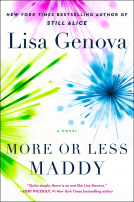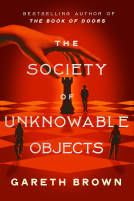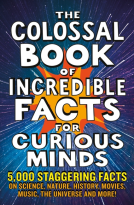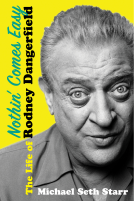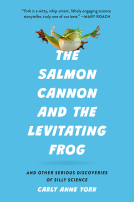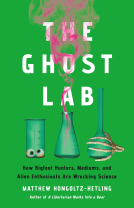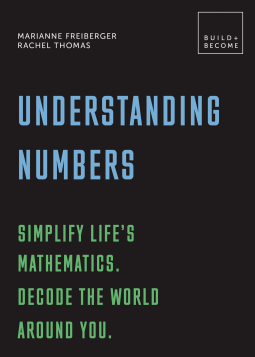
Understanding Numbers: Simplify life's mathematics. Decode the world around you.
20 thought-provoking lessons
by Marianne Freiberger; Rachel Thomas
This title was previously available on NetGalley and is now archived.
Send NetGalley books directly to your Kindle or Kindle app
1
To read on a Kindle or Kindle app, please add kindle@netgalley.com as an approved email address to receive files in your Amazon account. Click here for step-by-step instructions.
2
Also find your Kindle email address within your Amazon account, and enter it here.
Pub Date Apr 09 2019 | Archive Date May 29 2019
Quarto Publishing Group - White Lion Publishing | White Lion Publishing
Talking about this book? Use #UnderstandingNumbersSimplifyLifesMathematicsDecodeTheWorldAroundYou #NetGalley. More hashtag tips!
Description
"Simple, clear explanations of twenty ways in which mathematics helps us to understand practical issues of everyday life. Suitable for teenagers and adults, and beautifully produced. Highly recommended!" - Professor Ian Stewart, bestselling author of The Cabinet of Mathematical Curiosities
Mathematics is an indispensable tool for life. From the systems that underpin our newsfeeds, through to the data analysis that informs our health and financial decisions, to the algorithms that power how we search online – mathematics is at the heart of how our modern world functions.
In 20 dip-in lessons, Understanding Numbers explains how and why mathematics fuels your world and arms you with the knowledge to make wiser choices in all areas of your life.
• Make sense of health statistics
• Understand the mathematics behind political voting systems
• Get to grips with how online search tools work
• Discover how mathematics can create the perfect city
Marketing Plan
Key Selling Points: 20 visually-led lessons: easy-to-digest graphics and accessible text clearly explain key concepts in a stylish and highly collectable package. Uniquely practical approach to the maths that matters, by maths journalists who can make numbers both relatable and fascinating Growing market for core self-improvement books on key skills aimed at a younger (24-45) demographic.
Key Campaign Activity Publicity focus on pop culture outlets and reviewers Target traditional trade outlets Use author contacts in the US
Trade: Series pitch to: Library Journal, Publishers Weekly, Shelf Awareness, Booklist, Bookriot, NY Times, Wall Street Journal and NPR.
Consumer: Outreach to top pop culture reviewers and outlets GoodReads Giveaway in February
Publicity/Media: Targeted pitches to pop culture reviewer, outlets and bloggers including: Buzzfeed, Huffington Post, Mental Floss, Geekscape, Pop Culture Beast, Refinery 29, Wired, Entertainment Weekly, The Observer, etc. Pitches to Library/University outlets: HerCampus, CoEd, School Library Journal, Booklist, PW, Lifehacker, Campus Talk, BookPage
Available Editions
| EDITION | Other Format |
| ISBN | 9781781318157 |
| PRICE | $15.00 (USD) |
| PAGES | 160 |
Featured Reviews
Easy to understand and with real-life examples, this book will be very helpful;. I"ll be recommending this one to our patrons.
 Karen G, Reviewer
Karen G, Reviewer
I love math so I knew this book was going to make me happy and it delivered 100% on its promise. This relatively compact book shows the readers how so much of our daily life contains math. It talks about concepts like mean vs median and relative vs absolute numbers. Concepts like game theory and Prisoner's Dilemma.
It focuses on five core areas: health, environment, society, relationships and communication. For each of these areas, it gives four examples of cases where math figures greatly into the core of that field/area. For example, in society, it talks about voting, in relationships, it talks about evolution of kindness, etc. Each section is short, to the point, and introduces the problem and shows how math is a part of how we tackle the problem. At the end of each section there are concise and precise learnings that help shift your thinking/perspective so you can remember what they covered.
I'm relatively familiar with many of these concepts in math/statistics and there still was much interesting content here for me and the concepts were put so simply and clearly that I had multiple discussions with my nine year old son over some of what was in this book.
Highly recommended.
Thank you to netgalley and the publisher for an advanced copy in exchange for an honest review.
At the end of a hectic, insecure and exhaustic, although also successful in some parts, week, I needed to delve into some reading which is completely out of my comfort zone. Reading about mathematics, and science in general, is not necessarily a complicated and hard to understand topic, but it has to do with a part of my life - and brain too - which is not regularly nurtured everyday. I might be aware of scientific facts, theories and mindset more than once the day, but the reflection and theoretical evaluations are seldom, for more than one reason.
Therefore, I was very happy to be given the chance to spend a couple of good hours in the company of Understanding Numbers. Simplify Life's Mathematics. Decode the World Around You, by Marianne Freiberger and Rachel Thomas. The book doesn't require a high-end mathematical knowledge, although a more than basic familiarity with using numbers and equations would be useful. It is simply yet insightful written, offering practical use of the numbers and mathematical models for the everyday life. Exactly what very often doesn't happen in the classrooms as teachers rather focus on the very 'cold' aspect of being able to solve equations instead of making a case for the overwhelming presence of mathematics in almost every aspect of life, especially in our nowadays high-tech world.
Therefore the book is addressed both to curious teens and adults looking to catch up with their lack of understanding of mathematical knowledge.
Galileo said that 'mathematics are the language of the universe' and it takes only a short look to figure out that this assertion is available more than ever. From climate change to architecture - by the way, Gaudi's spectacular architecture was in fact inspired by mathematical surfaces he saw in nature - traffic jams - Michel Foucault would have had something to say about the way in which power and order are able to control the smallest aspects of life, including the not-so-banal traffic roads in cities - genetics and biology, voting systems - one of the most complex mathematical systems that I ever encounter in my short number-oriented life experiences - epidemics prevention and spread, cryptography, game theories - which I find fascinating, but whose application in international relations models wasn't unfortunatelly approached by the authors . or dating. You have now the full picture.
Those interested in finding out more about various models and theories are offered some useful bibliographical sources that could advance the knowledge and familiarize with specific topics.
Especially if you are looking for a non-fiction break from real life, Unterstanding Mathematics is a very useful book. It might eventually open-up the appetite for more readings on such topics which is always a good medicine for the busy, creative brain.
Interesting look at the role of math in various aspects of society
I enjoyed this book. It's not that the book actually explained mathematics; it's more that the book gave me an appreciation of the role of mathematics in several areas, including medicine and the environment. The book tries to convey that when scientists discuss vaccines or epidemiology or climate change, there is a solid mathematical underpinning in the way these are studied. For this reason l think that this is an important book and I recommend it for people who might want to improve their understanding of science.
If you have too many self help books written by fancy book bloggers who use fancy titles and lots of fancy words to deliver self-help wisdom.
But after reading them you realise you got only few catchy stories from Wikipedia on which their theory is forcefully pasted and laced with fancy tables.
.
It is time to discover real books. Books that convey practical scientific knowledge in simplified and enjoyable way. Time to discover real stuff in titles by build+ become which deliver the usable knowledge.
.
It is my second read of this series and I liked it as much as I liked the first book. @thinkdifferentely.
Book is divided into four sections with four chapters in each and four diagrams. Aim is to highlight importance of mathematics in our life.
Everything we do involves maths and how we can benefit by getting insight into simple application of maths in our lives.
.
Author successfully demonstrates role of maths in finance, Architecture, evolution, bank loan, sexual choice, health, vaccination, Artificial intelligence, google, twitter, friendship , GPS, email passwords, spam and in almost every facet of our life.
.
It is very easy to read and understand and you will thank yourself for picking it up.
. Thanks netgalley and publisher for review copy.
.
.
Also do checkout other #buildbecome titles which are equally emphatic and interesting.
Readers who liked this book also liked:
Karen Thompson Walker
General Fiction (Adult), Literary Fiction, Sci Fi & Fantasy
Nigel Henbest; Simon Brew; Sarah Tomley; Ken Okona-Mensah; Tom Parfitt; Trevor Davies; Chas Newkey-Burden
Entertainment & Pop Culture, Humor & Satire, Nonfiction (Adult)

